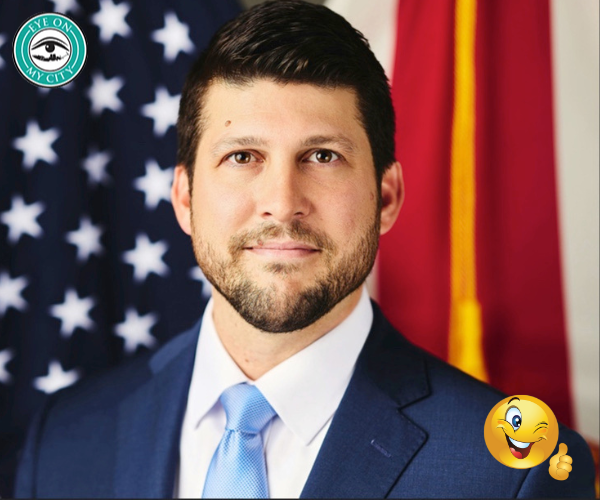The pushback against a muley, over-reaching judiciary is starting to spread. Two days ago, the Florida Phoenix ran a story headlined, “Defiant State AG Uthmeier says he won’t tell cops to stop arrests under suspended immigration law.” The sub-headline added, “AG faces hearing on May 29, when a U.S. judge will consider holding him in contempt.”
The standoff began after Florida passed a law making it a first-degree misdemeanor for entering the state as an “unauthorized alien,” with higher charges for subsequent re-entry. Activists promptly sued, making the tired and long-overused argument that only the federal government can enforce immigration laws. On April 4th, U.S. District Judge Kathleen Williams agreed, and ordered enforcement of Florida’s new law to be indefinitely stayed.
About two weeks later on April 23rd, State Attorney General James Uthmeier —appointed by DeSantis to replace the previous AG who took Marco Rubio’s Senate seat— wrote a letter to Florida’s law enforcement agencies telling them to keep making arrests under the new law despite Judge Williams’ order. He also appealed Judge William’s stay to the Eleventh Circuit.
“I do not believe an AG should be held in contempt for respecting the rule of law and appropriate separation of powers,” Uthmeier explained in a press conference. “The ACLU is dead set on obstructing President Donald Trump’s efforts to detain and deport illegals, and we are going to fight back. We will vigorously defend our laws and advance President Trump’s agenda on illegal immigration.”
Even though no arrests have been made since Uthmeier’s letter, Judge Williams still issued an order to show cause why AG Uthmeier should not be held in contempt of court, a set a hearing for May 29th.
Uthmeier is on solid ground. Unfortunately for immigration activists, the argument that only the federal government can enforce immigration law has already taken serious damage in the Fifth Circuit. In Texas v. United States and related rulings, the Fifth explicitly upheld states’ ability to participate in immigration enforcement under certain conditions, like when the federal government neglects its enforcement responsibilities.
To be perfectly fair, the Fifth Circuit’s decisions don’t bind the Eleventh Circuit or Judge Williams. But if the Eleventh decides differently, the case will be immediately ripe for the U.S. Supreme Court under the “split decisions” rule. Various parts of the Fifth Circuit’s decisions are already at the Supreme Court anyway.
Thus, we can see that Attorney General Uthmeier is playing a much bigger game than rope-an-attorney-general. A split between the Fifth and Eleventh Circuits over immigration enforcement would put the case on a direct glide path to the Supreme Court. That might be exactly what Florida and AG Uthmeier are aiming for: a constitutional showdown.
And if the Supreme Court allows states to participate in immigration law, even a little, the national floodgates will burst open. Well played, General Uthmeier.










